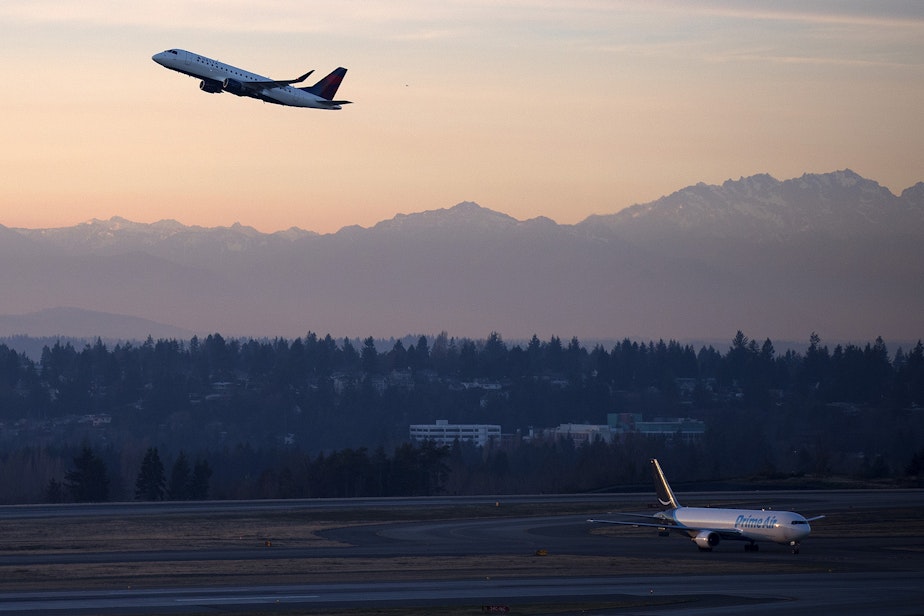Sea-Tac Airport sued over pollution by firm that took on Big Tobacco

Attorneys are suing Sea-Tac International Airport over emissions, on behalf of residents who live along its flight paths.
Plaintiffs say airplane emissions have caused harm to the roughly 300,000 residents who live within five miles of the airport.
The law firm Hagens Berman Sobol Shapiro filed the lawsuit Wednesday in King County Superior Court. They are asking for class-action status.
The suit says Sea-Tac Airport (owned by the Port of Seattle) along with Alaska Air and Delta Airlines knew its emissions caused high cancer rates and lower life expectancies for people living and working nearby.
Steve Berman, the plaintiffs' lead lawyer, said it’s an issue of environmental justice for vulnerable communities.
"There was a scientific consensus by the University of Washington, the King County health department, and other entities studying this issue that it's a health problem and that it's affecting a community that doesn't have the resources to speak for itself," Berman said. "If this was happening in Medina, Mercer Island, it would not be happening."
Sponsored
The University of Washington produced a report in 2019 about the "ultra-fine" particles that rain down from planes. Existing research shows elevated levels of ultra-fine particles, lead, carbon monoxide, and other hazards in the radius around Sea-Tac Airport. That community — including the cities of Sea-Tac, Tukwila and Burien — has a higher portion of immigrants and BIPOC (Black, Indigenous, and people of color) residents than King County as a whole.
"Because of the pollution that is coming out of these airplanes," Berman said, "people in the region have increased risk of cardiovascular disease, respiratory disease, poor birth outcomes, higher incidence of cancer, and a whole host of other diseases."
Berman, in the complaint, argues that airplane pollutants are the only plausible source of elevated formaldehyde and other toxins in the soil.
The case could be precedent setting.
Attorneys in the U.S. have sued numerous airports for noise pollution, but this is believed to be among the first over airport ground and air contamination.
Sponsored
Hagens Berman Sobol Shapiro has a record of pursuing large, class-action cases.
Steve Berman took on tobacco companies in 1998, on behalf of 13 states, to win the largest civil settlement in history. The firm was first in the nation to sue Volkswagen for emissions fraud, and represented the investors of Bernie Madoff.
In a statement, the Port of Seattle says it's reviewing the litigation. A spokesperson noted that the airport and its tenants follow strict federal, state, and local requirements on air quality and noise.
The Port's statement goes on to say, "the airport and its tenants routinely go above and beyond regulatory requirements to voluntarily further eliminate emissions, reduce noise, and protect habitat.”
Alaska Air and Delta Airlines have not responded to requests for comment.




